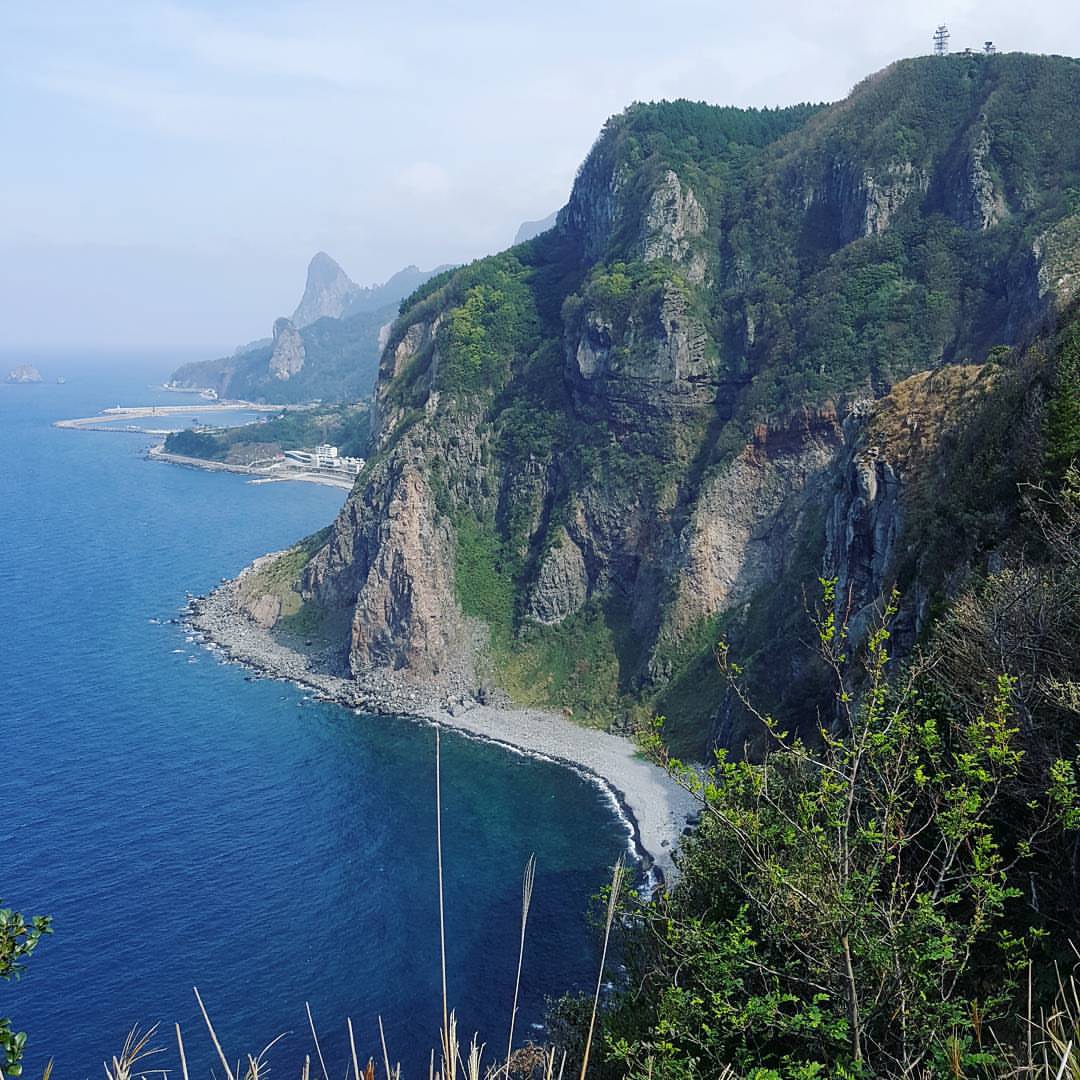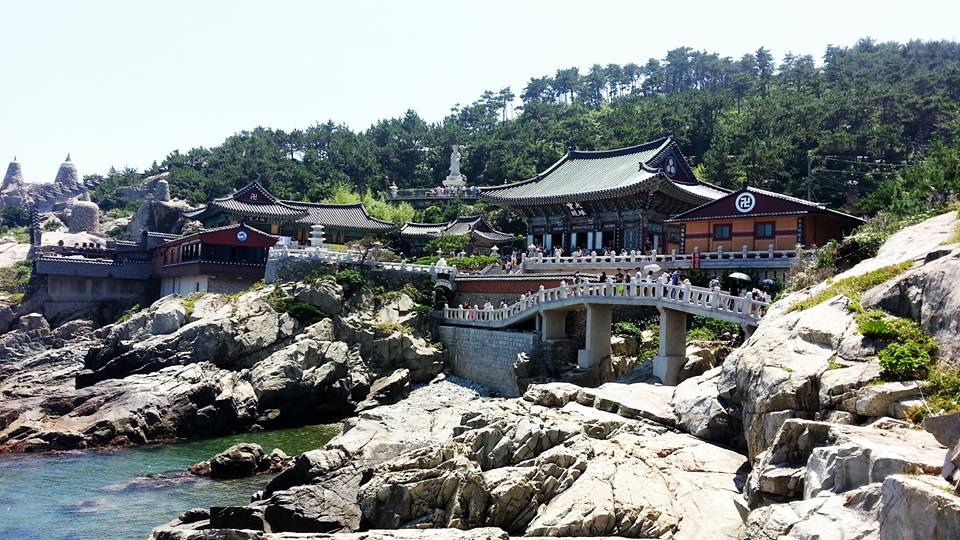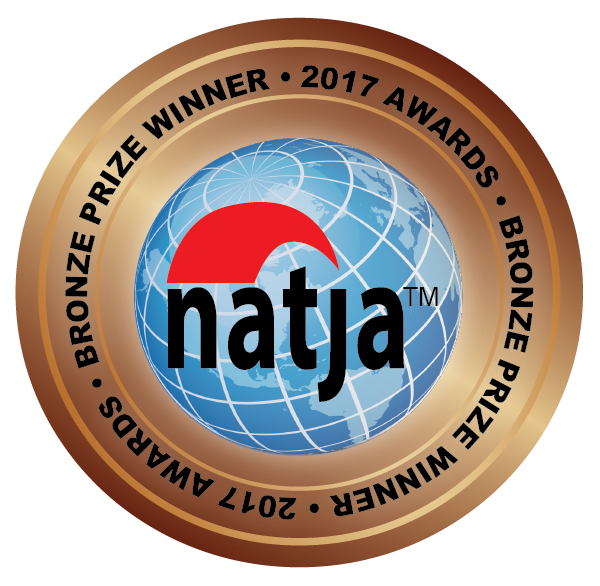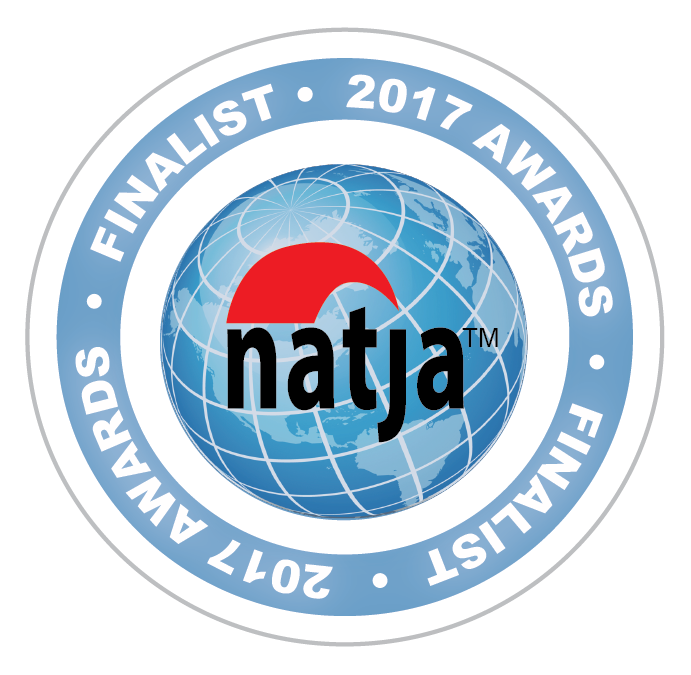Other places may make the claim, but Seoul is truly the city that never sleeps. Everywhere people are walking, running, talking, laughing, eating. LCD billboards flash with fluid colour like digital oil slicks. Punchy Korean pop ballads blare from open shop doors. Old women shout to one another over sidewalk fruit stalls. Metro trains thunder overhead and rumble underfoot. Cars and buses whip past at breakneck speed, scooters threading their way recklessly between the bigger vehicles and stirring up a flurry of horns in their wake. Every sight and sound adds to the hum of energy and urgency that seems to permeate this city.
Fresh off the plane and entirely alone, I am overwhelmed. No amount of research could have prepared me for the reality of the situation now facing me—an entire year living and working in this heaving, flashing beast of a metropolis.
My apartment is a dingy studio located behind a Chinese restaurant. The walls are covered with yellowing, flower-patterned paper and the mattress is perched on top of three plastic stands. Mold blossoms in soft grey shadows behind the sparse furniture. If I stretch my arm out over the side of the bed, I can almost touch the cupboards of my tiny kitchenette.
I leave my suitcase on the floor that first night, belongings spilling from its cavity onto the laminate in colourful carnage. The thought of putting things away—of beginning to settle into this dim, cramped space—has anxiety clawing its way up my throat.
I don’t so much fall asleep as force my brain to switch off, eyes screwed shut against the hot prickle of tears.
To my young Korean students, I am a strange and wonderful alien sent from space to chatter at them in English.
They touch the hair on my arms, exclaim over my freckles, marvel at the size and colour of my eyes. I am subject to a constant deluge of questions, Korean and English tumbling from their mouths in an excited jumble:
“Can you speak Korean?”
“Where do you live?”
“How much do you weigh?”
“Is that your real hair colour?”
“Do you have a baby?”
“Do you have a boyfriend?”
The Korean teachers laugh, shocked, when I answer each and every question. “You don’t need to tell the students these things if you don’t want to,” Miss Kim says, a hint of mortification in her voice.
I shrug. “Some of them have never even seen a foreigner before. They’re just curious.”
Without a doubt, my students’ eager desire to get to know me is one of the best things about my job.
My Korean coworkers are kind but a bit hesitant around me, scared I’ll suddenly address them in English and put them on the spot. I hold their gaze for too long, I pass objects with the wrong hand, I’m clumsy with my chopsticks, I laugh a little too loudly. My foreign-ness is an entity unto itself, looming tall between us whenever we interact.
My students brush that barrier aside without a second thought. They shout cheerful hellos at me in the hallway, link arms with me on my way to class, ask me bluntly about the new zit on my chin, and loudly admire my outfit. They parrot back every English sentence I speak, trying to mimic my accent, and dissolve into fits of delighted laughter whenever I offer up a few words in halting Korean.
Their enthusiasm and easy acceptance anchor me here, give me a sense of normalcy that is otherwise glaringly absent in my day-to-day, fledgling expat that I am. To them, I’m not just a foreigner adrift in a strange city—I’m Lindsay-teacher, a fixture in their lives and someone they look forward to seeing every day.
I latch onto this thought like a lifeline and don’t let go.
“Oh my god, they are so loud.”
My friend angles her head meaningfully and I follow her gaze to the group of foreigners sitting on the other side of the restaurant.
Four men and three women, dressed more for the beach than dinner in downtown Seoul, talk animatedly. Empty bottles of soju and beer litter their table and the strips of pork belly on the central grill are smoking a bit more than they should be. None of them seem to notice.
As I watch, one of the men pours another round of soju for his friends, sloshing clear alcohol over the sides of the tiny glasses. He slurs something I can’t quite catch and the table erupts into raucous laughter, drowning out the smooth K-pop track playing in the background.
Heads swivel. Glances are shot at the noisy group. We stare along with the Koreans.
I look back at my friend, eyebrows raised, and grimace. “Yikes.”
“Foreigners can be so obnoxious,” she says, deftly turning our own 삼겹살 on the grill so the meat won’t burn.
I nod in agreement then pause, struck by the sudden realization that we, too, are foreigners here. How could I have forgotten?
I say as much, and my friend laughs. “We’re foreign, but we’re not tourists. There’s a difference.”
Was that true? I mull the thought over, chopsticks moving in what has become an instinctual pattern as I stack ingredients to make a lettuce wrap. 상추, 밥, 고기, 쌈장. The Korean words float, unbidden, to the surface of my mind and it takes me a second to translate them into English. Lettuce, rice, meat, spicy soybean paste.
Nearly two years in Seoul has changed the way that I speak. I find Korean springing to the tip of my tongue often now, the cadence of it somehow more natural in these surroundings than my native language.
My English has changed as well, simplified, the sharp edges of consonants smoothed into sounds more familiar to the Korean ear. I drop articles from my sentences like loose change, inconsequential “the”s and “a”s hitting the ground with a plink.
Language barriers have a tendency to strip our speech down to its bare bones, exposing which parts are truly vital.
I eye the table of loud foreigners again, catch the waitress’ nervous confusion as they try to explain to her that they want to split the bill in slow, exaggerated English.
I know that Koreans almost never split the bill when they dine together, the eldest often picking up the cheque. I’m aware that it’s polite to pass things like money to someone with two hands instead of one. I’m able to say “it was delicious” and “thank you” and “goodbye” in Korean. Is that what sets me apart, what makes me different from a tourist?
My friend and I finish eating and chat briefly with the middle-aged woman at the register as we pay for our meal. She responds to us in a manner I’ve become very familiar with—surprise that we know some Korean, relief that she won’t have to dust off her rusty English skills, curiosity over why we’re here.
We explain that we’re English teachers. We tell her we love Korean food. She’s smiling by the time we leave, urging us to come back and eat here again.
As we step out into the neon-lit night, I decide that the difference between tourist and not-tourist doesn’t have to do with cultural knowledge or linguistic ability. Not exclusively, anyway. It’s something much more nebulous, a feeling rather than an acquired label.
It’s the reason bowing now comes as naturally to me as a handshake. Why I don’t apologize anymore when I bump into someone. Why I feel more uncomfortable in a tank top than a short skirt. Why I jump to pour drinks for my older coworkers and turn away respectfully when I down my own glass.
My instincts have shifted, chameleon-like, in response to my surroundings.
I wonder, will I recognize myself when I finally find my way back home? Another, more sobering thought: does “home” mean the same thing it used to?
It’s monsoon season in Korea and Seoul has become a lake.
I race home from the subway through the pelting rain, leaping over the deeper puddles and splashing through the rest, clothes soaked through and backpack held over my head in vain.
Cars zip past, sending up miniature tidal waves in their wake that threaten to overtake me at any moment. I would be more concerned if I weren’t already so thoroughly drenched.
The sky and the city have both turned the same sullen grey. Even the neon signs have a drowned look, their colours somehow muted. I almost dash past the entrance to my apartment building’s tiny alleyway, its narrow gap just a charcoal smear in a wall of rain-washed brick.
I punch the passcode into my building’s electronic lock, water dripping off the ends of my fingers, and have the door yanked halfway open before I realize someone is calling me.
“아가씨!” the voice calls again. “Miss!”
I turn around and spot an old Korean woman standing by the alley wall. In my rush to get inside, I hadn’t even realized she was there.
She waves me over, palm facing downwards in the Korean fashion, and I reluctantly step out from under my building’s overhang and back into the downpour.
“네?” I inquire politely, as if we’re not standing outside in the middle of one of the worst monsoons of the season.
Her eyebrows raise in surprise and a wide grin breaks out over her face. “You’re a foreigner!” She exclaims in Korean. “I didn’t realize.”
I nod. What is this woman doing here? She’s dressed in the sort of comfortable, patterned clothing older Koreans wear at home. No umbrella in sight. Her fine white hair is plastered to her head, the rain carving its way down through the wrinkles on her face like rivers through stone.
She cackles and says something else. Her provincial dialect is hard for me to understand, so I bob my head deferentially and murmur “Nice to meet you” in lieu of an actual response. I’m itching to get inside and dry off, but my sense of Korean propriety—finely-tuned after nearly three years in Seoul—won’t let me budge.
The old woman offers me another cheerful grin and holds out her hand. I realize suddenly that she’s holding a plastic takeaway container, the round kind with a lid that’s meant for soup.
“Take it!” she says.
I accept the Styrofoam gift automatically with both hands and thank her.
She pats my shoulder in a grandmotherly way and says something about the weather in her rolling accent. Before I can say anything else, she turns and walks off.
Entirely baffled by the encounter and in desperate need of some dry clothes, I hurry inside.
The Styrofoam container is waiting for me on the counter when I emerge from the shower. It’s still warm to the touch. I open the lid and inhale fragrant steam—호박죽, creamy pumpkin porridge. It looks homemade.
I dig a spoon out of my cutlery jar and plop down on my bed with the porridge. It’s silky, earthy, and mildly sweet. Just the thing for a rainy day.
I’m halfway through my third bite before it occurs to me that I’m eating food given to me by a complete stranger.
For some reason, the thought really throws me. If I were back in Canada I wouldn’t dream of eating the porridge, yet it feels completely natural that I do so here. What had changed?
The answer was immediately obvious. Me. I had changed. I wasn’t thinking like my old self, wasn’t acting like my old self. Over the years, Korea had sunk under my skin and seeped into my bones, but more than that, travel had transformed me.
The mistrust and suspicion that so often plagues those who never venture outside their comfort zone was simply gone. I had encountered too much kindness in the world for such feelings to last. I had been met with too much humanity.
Lofty philosophies to ponder over pumpkin porridge, maybe, but with every spoonful I feel myself warming inside. Wrapped in my colourful comforter, cocooned in my tiny apartment an ocean away from my family and the place I was born, a supreme sense of contentment settles over me.
Canada will always be home, and Korea, too. That’s the thing about setting down roots on the other side of the world—that strange soil will nourish you in ways you don’t expect. You can pack up and move on, but the essence of that place remains with you.
Maybe I’ll find new homes in the future, put down new roots. Almost certainly, I’ll change some more. The thought no longer worries me.
I’m eager to see just how much I’ll grow.

































